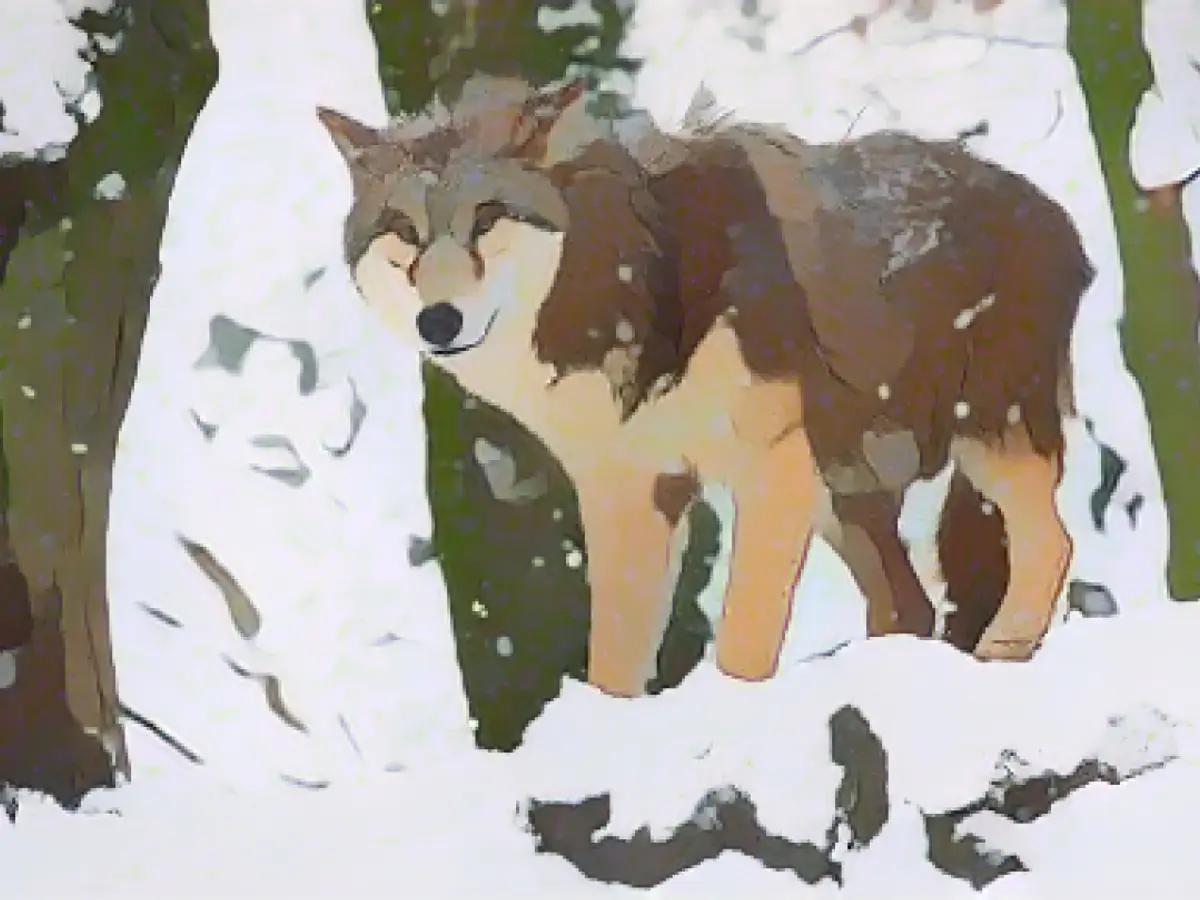No grace period - Wolf hunting begins today: Switzerland releases twelve packs for shooting
The wolf seems to feel at home in Switzerland. According to the Swiss government, the country had a total of eleven wolf packs and just over 100 wolves in 2020, but there are currently 32 packs and around 300 wolves. And it is not only the number of predators that has increased, but also the amount of damage they have caused. In 2019, wolves killed 446 livestock in Switzerland. In 2022 it was 1480.
The growing wolf population poses major challenges for alpine farming with sheep and goats in particular, the government wrote at the beginning of November - and announced consequences. Now it is getting serious: from 1 December, the amended Hunting Ordinance "allows the preventive regulation of wolf packs under clearly defined conditions to prevent future damage". The cantons are now allowed to shoot wolves to prevent future damage, and not only after damage has occurred.
Twelve packs are free to be shot from today until January 31. The cantons of Graubünden, St. Gallen, Ticino, Valais and Vaud had submitted corresponding applications, 12 out of 13 were approved. A pack usually consists of three to eleven animals; mother, father and the offspring of the last two years.
A difficult project
The Federal Office for the Environment assumes that the growth of the wolf population will be slowed down considerably. The hope is also that the wolves will become shyer. However, it is unlikely that twelve packs will be killed in the coming weeks. Rough terrain, winter weather and the animals' large roaming area are likely to make it difficult to find the wolves, writes SRF. The idea that an entire pack could be "removed" in a single operation is more theory than practice, a gamekeeper from Graubünden is quoted as saying.
And wolf hunting is not for everyone: in Valais, you need a valid hunting license and must be registered to hunt foxes and wild boar. There must also be no criminal proceedings against the hunter.
The president of the Valais Hunters' Association assumes that perhaps ten to 15 wolves will be shot this winter, but never more than two thirds of the wolves in Valais. And he promised in an interview with the "NZZ am Sonntag": "There will be no massacre". Many people have a completely wrong idea about wolf hunting.
The wolf - an emotional topic
Perceptions surrounding the wolf play a major role in the debate. After all, the animal also populates the stories we hear from an early age, where the wolf sometimes eats Little Red Riding Hood. Switzerland has been discussing its real wolves and the right way to deal with them for years. Some see the threat posed by the predator and, as farmers, are concerned about their animals and the foundations of their economy. Others see further human intervention in nature and emphasize the protection of the animal and the species.
According to the NZZ, there have never been any attacks on humans since the wolf returned to Switzerland in 1995.
With the amended hunting ordinance, there is now talk of a "paradigm shift in wolf policy". While the protection of the predator was previously the top priority, it is now the protection of property and possessions.
Yet the electorate only rejected a new hunting law that sought to relax wolf protection in 2020. Albeit narrowly, with 51.9 percent of the vote. At the time, opponents saw not only the wolf but also other protected species at risk. They criticized "stockpile shooting". What was striking about the result was that mountain regions and cantons in central Switzerland voted in favor of the hunting law. In the cities, on the other hand, the mood was more pro-wolf. "Beobachter" asked cultural anthropologist Nikolaus Heinzer, who had closely followed the debate, in 2020: "What do city dwellers see in the return of the wolf? His answer: "The wolf is part of an endangered species that is on the retreat worldwide. If it spreads again, it is a selective recovery, a symbol that things can be different if humans create the conditions. Political commitment to the wolf is therefore a commitment to nature, like buying organic products. Its return stands for a development as a whole that we want to promote."
Germany is also arguing about the wolf
While the wolf in Switzerland is already on the hunt, it is also the subject of debate in Germany. In Germany, problematic wolves that have breached protective fences and killed livestock are to be killed more quickly than before. This was agreed by the federal and state environment ministers at their two-day meeting in Münster, Westphalia. "We have achieved a breakthrough," said North Rhine-Westphalia's Environment Minister Oliver Krischer, who chaired the conference at its conclusion on Friday. The proposals by Federal Environment Minister Steffi Lemke to make it easier to shoot the predators had initially not gone far enough for the federal states.
The federal states are to define certain regions with increased wolf killings. Unlike in the past, however, it should not be necessary to wait for a DNA analysis before shooting a wolf that has breached protective measures and killed livestock.
Lesen Sie auch:
- A Palestinian student knocked on his neighbor's door to seek help for his friend before realizing he too had been shot dead
- Senate committee investigates Florida government-backed home insurance companies as private insurers flee
- The cantons of Grisons, St. Gallen, Ticino, Valais, and Vaud, among others in Switzerland, have been granted permission to hunt wolf packs to prevent future damage.
- Wolves have caused significant damage to livestock in Switzerland, with 1480 animals killed in 2022 compared to 446 in 2019.
- The president of the Valais Hunters' Association expects that only ten to fifteen wolves will be hunted in Valais this winter, not exceeding two-thirds of the total number.
- Despite the growing debate about wolf hunting in Switzerland and Germany, some see it as a commitment to nature and a symbol of a desired development.
- The cantons of Graubünden, St. Gallen, Ticino, Valais, and Vaud are among the Swiss cantons that have been approved to hunt wolf packs, following the increase in wolf population and damage to livestock.
Source: www.stern.de








